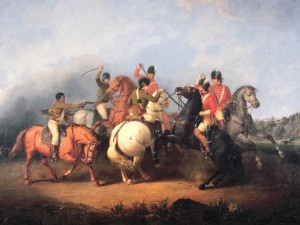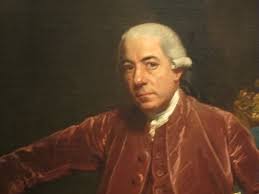At The Junto, Christopher Minty asks whether the American Revolution was a civil war. In doing so he’s responding the the same question asked by Tom Cutterham last year at the same blog. By arguing that the American Revolution was more a civil war than a war between two nations, Cutterham hopes to challenge the notions “that the division between British and American became absolute at the moment of the Declaration, that a new nation was born in that instant, and that the only distinction that mattered was the one between the United States and its enemies.” He concludes, “If we saw this and every revolution as a civil war, maybe we’d better understand the way the modern world—the nexus of state, citizen, and property—was born in and determined by violence.”
I certainly have no argument against his contention that “the modern world…was born in and determined by violence.” Military historians often try valiantly to make this point to other historians who think we don’t do anything more than give narrative accounts of battles and biographies of generals. But it’s also important to understand the dynamics of that violence, or how it played out at the local level. Because Cutterham sees the war as “a story of dissolving sovereignty and contested authority, lawless violence and the search for security.” He adds “Its true theorist was not John Locke, but Thomas Hobbes.” The latter statement is certainly true, but it’s also true for pretty much all war. The American Revolution was not unique among wars in its violence. However, I would suggest he overstates the case by writing off the war as complete anarchy. If you look at the way the violence unfolded, you begin to see a logic to that violence. Continue reading


